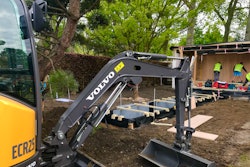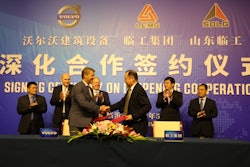With a shared goal of putting circular thinking at the heart of the construction sector, major European construction actors have come together with environmental and standardization stakeholders to jointly request a comprehensive strategy on circular economy in construction. This strategy should take into account the relevant opportunities and challenges, develop circularity goals and work towards greater coherence of existing policy objectives and initiatives.
Made up of more than 3 million enterprises, the construction sector generates about 9% of EU gross domestic product and provides 18 million direct jobs. But the importance of the sector goes even beyond that. Indeed, construction enterprises play a fundamental role in the comfort and well-being of the European population by building and maintaining homes and commercial buildings.
At the same time, the sector produces Construction and Demolition Waste (CDW) accounting for 25-30% of all waste created in the EU, making it one of the most significant waste streams. This is a challenge that all the signatories of the declaration "Construction in the circular economy: Towards circular materials, products and buildings" want to address, by joining forces to promote the objective of the European Commission’s Circular Economy Action Plan which aims to make the EU economy circular.
Through a number of legislative acts, voluntary initiatives, EU-funded research projects, and the Construction 2020 Thematic Group on “Sustainable use of natural resources”, the European Union and relevant stakeholders have joined forces to better promote the sustainability of buildings and raise awareness on recycled/reused construction materials and products in recent years.
However, in order to make circular economy a reality in the construction sector, a comprehensive strategy is required, that includes an expert platform within the future construction policy initiative (currently “Construction 2020”). In calling for this, the signatories of the declaration have also put forward guiding principles for a coherent approach on circular construction and sustainable buildings, which can engage all stakeholders.
Riccardo Viaggi, CECE Secretary General concludes, "By signing this declaration, construction value chain shows once again the strong collaboration between all actors of the construction industry at the EU level in order to engage in strategic steering of a circular construction economy that benefits circularity. "
The full declaration can be downloaded from CECE's website.



















